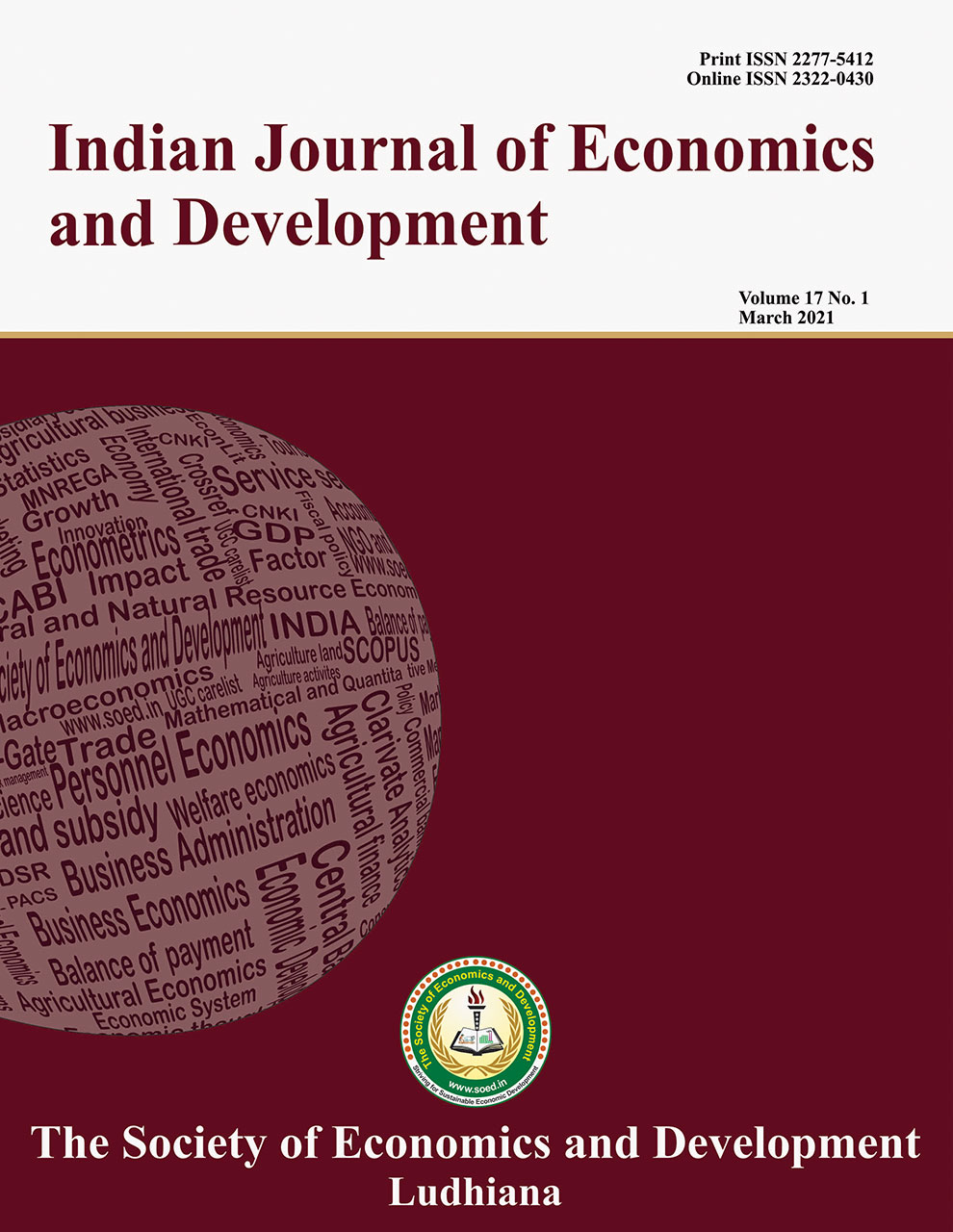Modelling the Relationship between Climate Change and Rice Yield: Evidence from Indian Agriculture

Price: ₹ 500
Author Address: Tahir Fazal Choudhary, Meenakshi Gupta and H.K. Mavi
Keywords: ARDL method, climate change, CO2 emissions, rice yield
JEL Codes: C52, Q15, Q54.
Abstract
Crop production and global food insecurity are threatened by climate change, which is expected to worsen in the coming decades. The present study demonstrated the relationship between the climatic variables and rice, a major component of cereals that occupies an important place in Indian food consumption. The essential climatic requirements for the cultivation of the crop are high temperature, humidity, and adequate rainfall coupled with the availability of irrigation facilities. However, with the variation in climatic conditions (Fluctuating temperature and rainfall patterns), the crop yield is affected to a greater extent. The present study attempted to analyze the impact of climate change on rice yield. The study used climatic variables, namely average annual temperature in °C, annual average precipitation in mm, and CO2 emissions in Kilotons as the independent variables, while the rice yield (kg/hectare) was a dependent variable. After analysing the impact of the climatic variables on the rice yield, using the ARDL method and it was found that all the selected climatic variables significantly affect rice yield. The estimated result of the study revealed a significant negative effect of rising temperature on rice yield, whereas precipitation and CO2 emission had a significant positive effect on rice yield. The study recommends the development of stress-tolerant varieties of crops, implementing crop insurance, and making metrological information available to farmers to overcome the adverse impact of climate change.
Description
Indian Journal of Economics and Development
Volume 18 No. 2, 2022, 495-500
DOI: https://doi.org/10.35716/IJED/22039
NAAS Score: 5.15 (2022)
Indexed in Clarivate Analytics (ESCI) of WoS
Indexed in Scopus (SJR: 0.18)
UGC Approved (UGC-Care List Group II)



